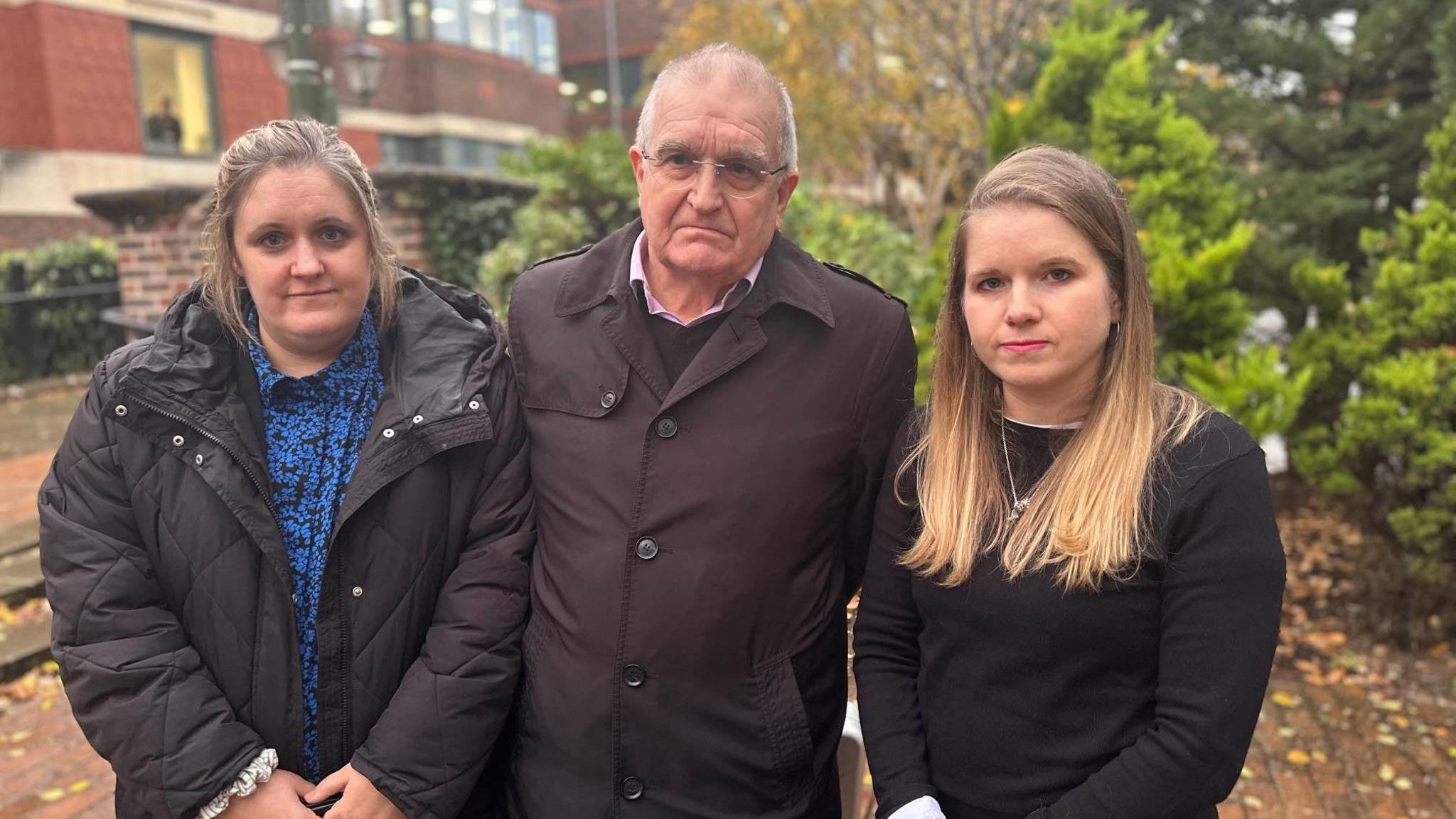NHS trust makes changes after blood clot death

Ann Pearce, pictured with her husband Graham, died of a blood clot six days after injuring her leg in a cycling accident
- Published
An NHS trust is reviewing how it conducts patient risk assessments following the death of a woman who died from a blood clot.
Ann Pearce, 61, was admitted to the Princess Royal Hospital in Haywards Heath, West Sussex, after a cycling accident in Burgess Hill in March 2022.
She died of a pulmonary embolism six days later and her family claimed she should have been given blood thinners, an inquest heard on Monday.
University Hospitals Sussex NHS Foundation Trust said it had made "significant changes" to how it assessed patients with blood clots.
The trust extended its "deepest condolences to the family of Mrs Pearce".
West Sussex area coroner Joanne Andrews outlined a number of occasions where Mrs Pearce and her family raised their concerns with medical staff, citing a family history of blood clots.
However, it wasn’t until the morning of her death that she was given the appropriate medication.
Recording a narrative verdict, the coroner said she would be writing to the trust urging it to review certain patient risk assessments.
In a statement issued before the ruling, Mrs Pearce's daughter Wanda Clement described her mother as "the glue that kept our family together".

Ann Pearce's family say she should have been given anti-clot medication
Mrs Pearce's other daughter, Dr Holly-Joy Sutton, a GP and former emergency department registrar, claimed her mother had asked for blood clot prevention while in hospital but never received it.
She said: "My mum was fit, vegan and a devoted grandmother to three young children.
"She never got to meet my youngest child as I was 25 weeks pregnant at the time of her death."

Wanda Clement, Graham Pearce and Dr Holly-Joy Sutton believe their mother and wife would have survived if she had received blood clot prevention treatment
University Hospitals Sussex NHS Foundation Trust chief nurse Dr Maggie Davies said: “Our emergency department teams work incredibly hard under huge pressure and always try to provide the best possible care for their patients.
"Since Mrs Pearce’s tragic death, we have made significant changes to how we assess people at risk of developing a blood clot and have reorganised the clinical decision unit at Princess Royal to improve staffing levels.
"We have also updated training for clinical staff to make sure we continue to learn from this sad case.”
Follow BBC South East on Facebook, external, on X, external, and on Instagram, external. Send your story ideas to southeasttoday@bbc.co.uk, external.